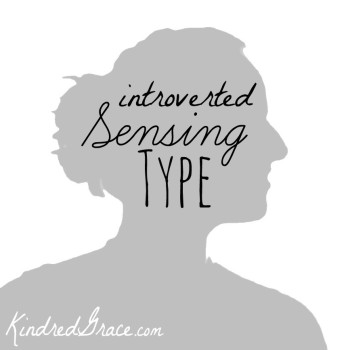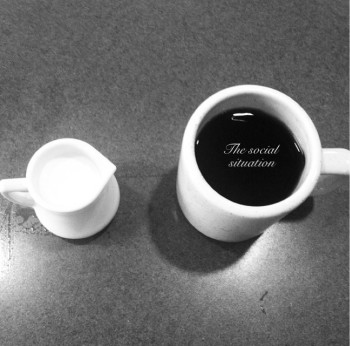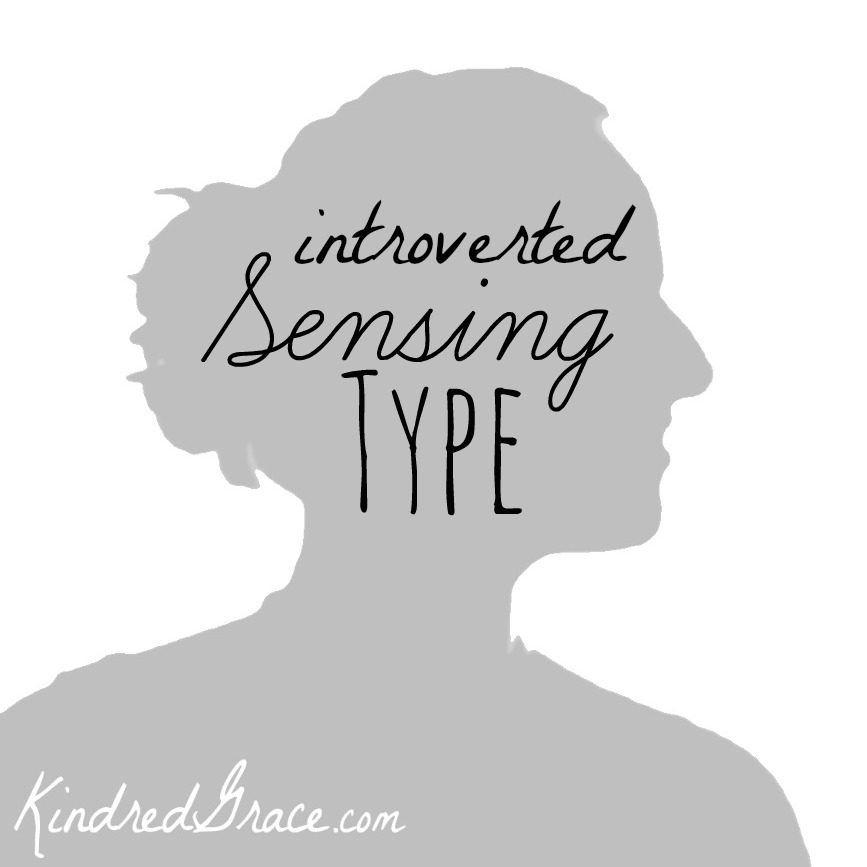Thoughts from an ISTJ on the Introverted Sensing Type

The following is based off of a conversation I had with an individual who is one of the most perceptive and intuitive individuals that I have ever encountered.
“People always say ‘extroverts get energy from people,’ but they fail to define energy. I think the energy they are referring to is all about stimulation of the mind,” she said.
This cast me into a deeper analysis of the E/I binary. Why do extroverts put so much attention on people? Because they get their energy from them, yes. But I wonder how much of that is a conscious decision. While I’m sure many are aware of their natural proclivity, how many of them wake up in the morning and think, “I’m really tired, I’m going to get to the office early and find someone to talk to so I can wake up.” Obviously very few. So I guess my question is why do they get energy from people? And why do their counterparts not?
Stimulation of the Mind
When you’re talking to someone and they are sharing their ideas, encounters, and thoughts about whatever it is they are telling you, in that moment, are you stimulated by that invitation into their reality? Reality being defined not as absolute reality, but rather the world that an individual perceives to be true whether actual or not. And while I’m defining things, let me also define stimulation. Stimulation not as just interested in what said person is saying. But more of a “yes, yes, give me more, keep going, and then onto the next conversation!” Or are you thinking, “yes, yes, okay, now stop, I need to go process this. I need to go put this into conversation with my own ideas, encounters, and thoughts.” Are you getting energy from taking on someone else’s point of view, or is it tiresome because you need to put it into conversation with everything that you think you believe?
And that right there is what I think is going on in the introvert’s mind during those stimulating conversations; at least it is what’s going on in mine. In that conversation, both the extrovert and the introvert are exerting energy entering into another’s reality. But afterwards, or during (I’m not sure which or if it even matters), the extrovert accelerates and floors the gas pedal, while the introvert slams on the brakes. And not necessarily out of a sudden disinterest or lack of social skills, but rather, a need to put what was just gathered into conversation with their own ideology.
Sensing and iNtuition
I attempted to conclude my analysis with that. But I felt that the extroverted/introverted binary was too broad. I believe that there is a correlation between the psychological preference of sensing and intuition, S and N. The sensing individual gathers meaning through reflecting on events after they’ve already happened and trust their experiences over impressions. While the intuitive individual gathers meaning through reading between the lines and trust impressions over personal experiences.
To put this in conversation with extroversion and introversion I’ll start with the introverted sensor. Sensors, as a general rule, are more likely to hold onto opinions of their own. And not necessarily because they are closed-minded, but rather because of the fact that, as introverts they tend to opt for depth and thrive off of reflection. For me personally, because my dominant Jungian functional preference is introverted sensing, I tend to gather information through past experiences and doubt information that doesn’t match that (opposed to adapting and changing my mind according to the situation as the extroverted intuitive individual is more inclined to do).

All of this reflecting also made me wonder if there is any correlation between the introverted sensor and the emperialist, and the extroverted intuitive individual and the rationalist. Since the emperialist rejects the notion that we are capable of knowledge in any subject matter outside of sense experience and the rationalist argues that knowledge can be gained outside of our experiences (and would therefore fall into the N category, since making meaning out of reading between the lines, a very abstract concept). However, that is neither here nor there and even more of a stretch, one that I must think more through before I delve into.
I would like to end this compilation of thoughts with an encouragement to sit with this a little more and put it into conversation with what you know about your own personality. And then, to store it. Next time you’re out engaging in the world, delving into others’ realities, or wake up really freaking tired, take note. How you process social situations? How or when you put others’ ideologies into conversation with your own? When you find yourself mentally stimulated?


I totally agree with you Ashley Hamilton, I am also a thinker, love to think and reflect, i find comfort and fun in doing that. I am an ISTJ, so I could relate with some of the things you said.
I have also learnt that as an introvert or extrovert regardless of who we are, or which type we fit in, Its great to have an open mind, I believe you learn so much from being open and willing to learn.
As you wrote earlier, about the sensors and how much we like to later reflect upon past experiences, its true and for me I have learnt and am learning to be open to listen to ideas of people and then as usual, I later reflect on what was said and i just love doing that.
I have come to appreciate and stand firmly in my God given personality and use my strengths to His glory.
This is fascinating, Ashley. Thank you for sharing with us!
My test stated that I’m ISFJ hit me dead on kinda scary. Many people call me stuck up, antisocial, spoiled, conceited and a host of other unflattering names. I always knew that I wasn’t however I didn’t know what I was. Blamed it on being an only child. I’m glad to know now and move forward. It’s challenging socially for me even in my congregation I’ve been there for 10 years and most folks still don’t know me. I’m used to that. I must try harder to widen out in my love and associations.